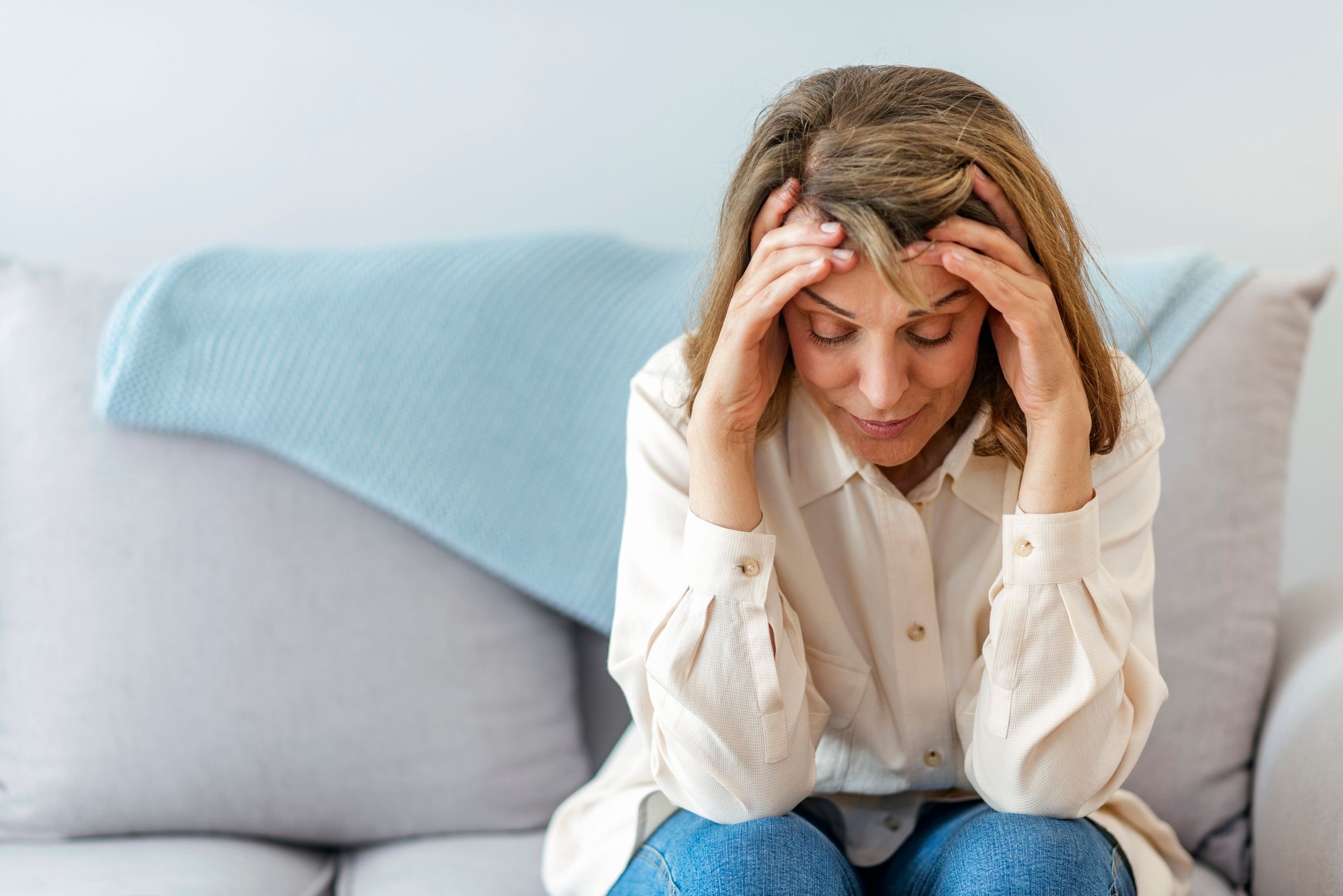If you want to reduce the likelihood of hot flashes, consider managing your stress level. I know, that's easier said than done right now. But here's why it's important: Research shows that women with moderate anxiety are nearly three times more likely to report hot flashes compared with women who have normal levels of anxiety, even after adjusting for other factors like depression, smoking and body mass index.
Some stress is unavoidable, but the key is to manage it before it gets out of hand. Stress is a response to a threat (perceived or real—and we have plenty of real threats with the coronavirus pandemic), while anxiety is a reaction to the stress.
If possible, eliminate stressful activities and thoughts in your life. (Do you really need to be the chairperson of that fundraiser? Do you need to constantly watch news about the coronavirus outbreak?)
Read more about Managing Your Coronavirus Anxiety.
Beyond that, use tried-and-true techniques like exercising regularly, getting eight hours of sleep, and practicing mindfulness through yoga or meditation and nurturing friendships (even if virtually, for now). (The Anxiety and Depression Society of America offers a helpful infographic.) Learn more about How Menopause Messes With Your Sleep.
If managing stress and avoiding other triggers (like alcohol and spicy food) doesn't seem to be reducing hot flashes, there are other things you can try. Hormone therapy (estrogen and progesterone) is the most effective treatment, but some medications are used off-label to treat flashes. For example, about 50 percent of women who are on certain antidepressants (e.g., venlafaxine, paroxetine, fluoxetine) enjoy a reduction in hot flashes, although the medical community doesn't fully understand why. Gabapentin (an anti-seizure/pain management medication) and clonidine (an antihypertensive medication) also seem to reduce hot flashes.
Some of my patients have used non-prescription products like Relizen and Femarelle (available only online) with some success, but remember that's anecdotal evidence. We don't have a lot of data on the effectiveness of herbal or over-the-counter products.
Talk with your health care provider, who can help you decide which option is best for you.
Barb DePree, MD, has been a gynecologist for 30 years, specializing in menopause care for the past 10. Dr. DePree was named the Certified Menopause Practitioner of the Year in 2013 by the North American Menopause Society. The award particularly recognized the outreach, communication and education she does throughMiddlesexMD, a website she founded and where this blog first appeared. She also is director of the Women's Midlife Services at Holland Hospital, Holland, Michigan.


